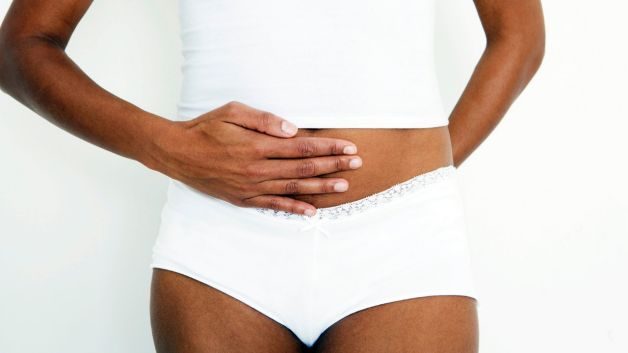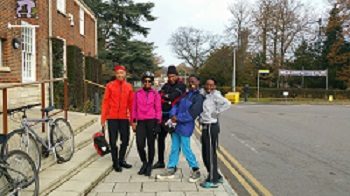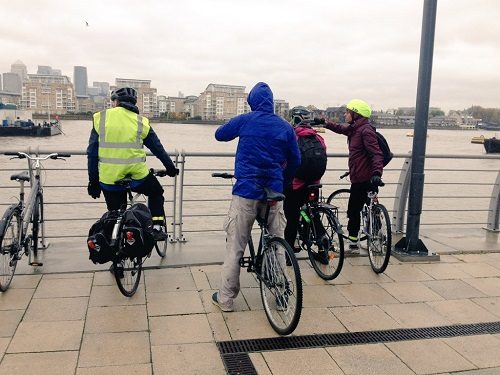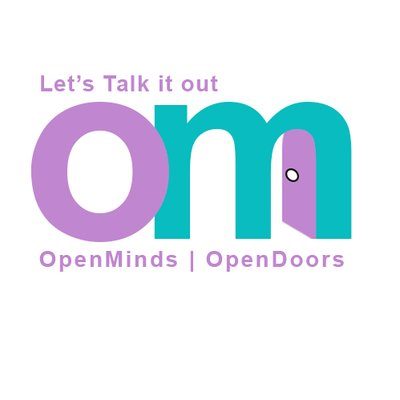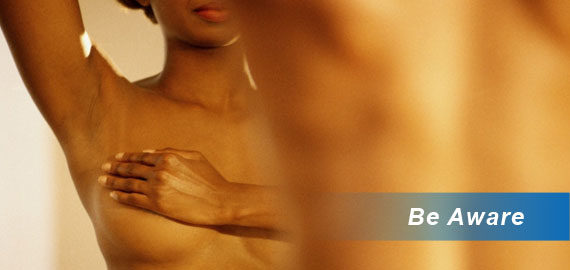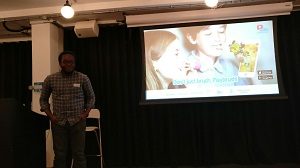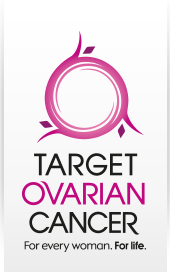Last night, we attended ‘Building Things for Nigeria 2.0’, an event that gave those in the tech industry the opportunity to showcase how they’re using IT solutions to address health, business, finance and social challenges.
One of the presentations that really stood out for us and really demonstrated the power that technology can have in public health was that delivered by the team behind the Playbrush.
What is the Playbrush?
The Playbrush is an award-winning device that aims to promote good oral health in children by making toothbrushing fun. It allows children to play entertaining and instructional games whilst brushing their teeth, these aren’t just games with no purpose but they actually get kids brushing for longer and properly.
The Playbrush is a Bluetooth device that can be attached to most manual toothbrushes and converts them into a game controller. It works by first downloading the Playbrush app to your mobile phone and then pairing the Playbrush, connected to a toothbrush, to your phone and then the games begin. Children can shoot Crobies, fly planes and save the tooth fairy by simply brushing their teeth.
Whilst brushing their teeth, motion sensors in the Playbrush record the duration and speed of brushing. A specific algorithm helps children brush for longer and more thoroughly, ensuring they cover all areas during brushing. Parents and children are given real time feedback through the brushing statistics and children can win rewards when they brush more regularly and accurately.
The games on the Playbrush are fun but educational and using the theory of action and reaction they teach children the importance of oral health in a fun and engaging way.
Who is Behind the Playbrush?
Giving the presentation at last night’s event was the Nigerian Co-Founder and Chief Technology Officer of Playbrush, Tolu Ogunsina, who worked with his two co-founders to make Playbrush a reality. Tolu described the inspiration behind the Playbrush, which was quite simple, observing children who were reluctant brushers and thinking about how to make a boring task fun.
They have also worked in collaboration with dentists, public health specialists, academics, investors, designers and engineers to create the Playbrush ensuring that the technology behind it does make a real difference to oral health, and their hard work and innovation has paid off as Playbrush has won multiple awards including:
- Winner of the Best Technology Innovation Award (Gamification World Awards 2015)
- UCL Bright Ideas Winner 2014
- eAward Winner 2016
- Dad Rated Bronze Award Winners
- Pioneers Vienna Competition Winner 2015
Now that is how you use tech!
We have heard so many horror stories of technology gone wrong and it was a pleasure to hear of the success of technology in changing health behaviour. The Playbrush has already exceeded expectations with the sales doing exceptionally well, dentist approval and interest from a number of dental companies. We wish them continued success and hope we see an improvement in the oral health of children.
Want to get your own Playbrush? You can pick up one on Amazon







